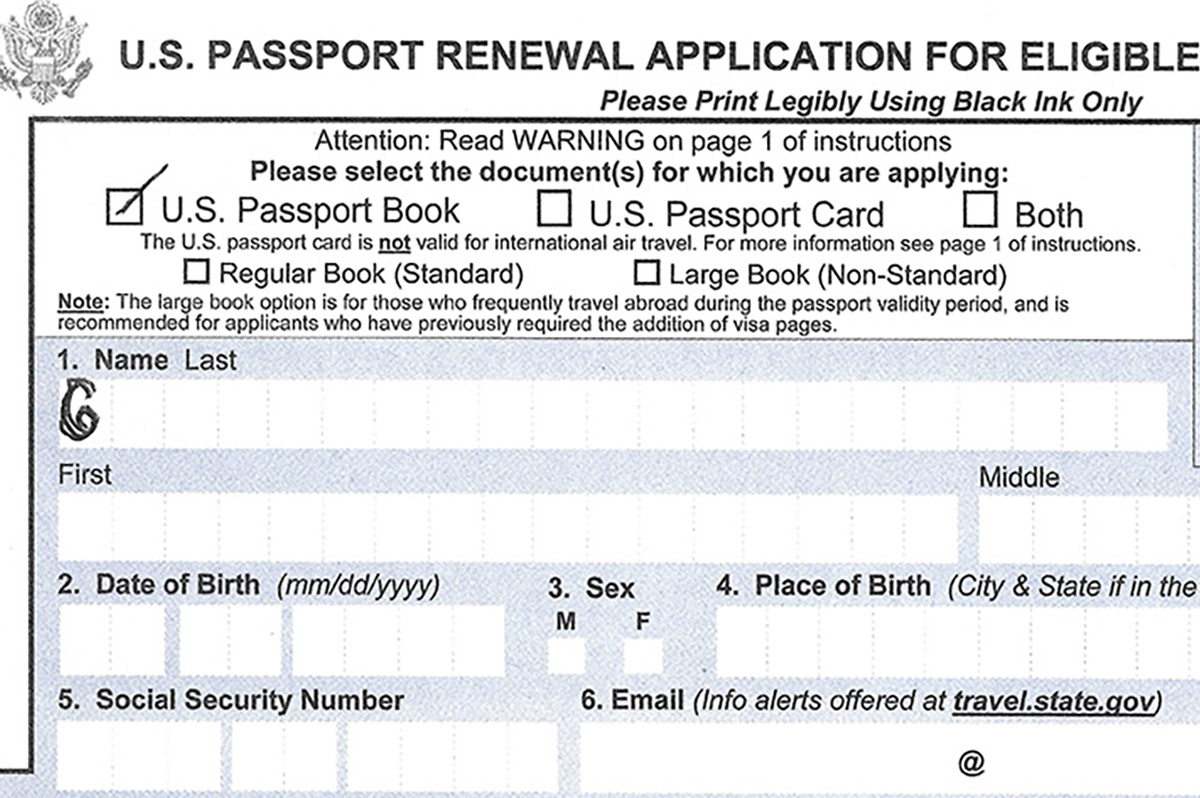National
Gay advocates assail Obama’s Justice Department
Claim administration misrepresented views in ‘Don’t Ask’ brief
Experts on “Don’t Ask, Don’t Tell” are lambasting the Justice Department, claiming the administration misrepresented their views in a legal brief aimed at thwarting a court challenge to the ban on open service.
Nathaniel Frank, a senior fellow at the Palm Center, a think tank at the University of California, Santa Barbara, said the Obama administration mischaracterized his views on the impact that open service would have on privacy issues.
“The way they portrayed me is preposterous and I’m not sure that any person in good faith hearing what I had to say could conclude what the [Department of Justice] concluded in their [request for] summary judgment,” he said. “I specifically said having a concern about privacy is not irrational, but using that privacy concern as an argument for the need to ban gays is irrational.”
Aaron Belkin, director of the Palm Center, similarly claimed the Justice Department misrepresented what he said in depositions about privacy arguments, and even went so far as to say the Obama administration lawyers weren’t being truthful.
“They completely misrepresented my statement in the deposition,” Belkin said. “They were not being truthful about my statement because they said that I claimed that there is a rational basis for the privacy arguments, and I claimed no such thing.”
In a request for summary judgment released earlier this week, the Justice Department names Frank and Belkin as among the experts on “Don’t Ask, Don’t Tell” who gave depositions in the case of Log Cabin v. United States. The lawsuit seeks to overturn the ban on the basis that it infringes upon the First Amendment rights of LGBT service members.
Both Frank and Belkin were questioned during deposition about whether privacy concerns for service members constituted a rational basis for the enactment of “Don’t Ask, Don’t Tell” in 1993.
The brief says Frank “acknowledged” during his deposition that “privacy concerns such as those on which Congress relied were not irrational.” But Frank disputed this characterization, pointing to his remarks during deposition.
According to an excerpt of the deposition obtained by DC Agenda, Frank was asked about privacy issues in the context of whether former Chairman of the Joint Chiefs of Staff Gen. Colin Powell’s statement in 1993 that service members “are required to live in communal settings that force intimacy and provide little privacy” was based on professional military judgment.
Frank replied that Powell — whose position has since evolved to endorse the Pentagon’s process for repealing the law — may have had concerns with privacy as a general matter based on professional judgment, but said Powell’s statement doesn’t “constitute an argument for keeping out open homosexuals.”
“Because what he says here is that service members are required to serve with very little privacy, so it doesn’t make any sense to me to conclude from that that there is a justification to exclude open homosexuals since he’s just acknowledged that part of being in the military means sacrificing privacy,” Frank said in his deposition.
It’s for this reason that Frank is now saying the Justice Department misrepresented his views in the brief against the lawsuit.
“So I really said the opposite of what the DOJ motion claims,” he said. “I made very clear that I would not call those feelings [about privacy] irrational, but nor would I call it rational to use that feeling as a legitimate basis for excluding a whole group of people. And that’s all there in the record.”
Belkin similarly cried foul, claiming the Justice Department mischaracterized his deposition in the brief. The administration says that Belkin testified that “the privacy basis is rational in circumstances such as combat where private accommodations are not possible.”
“Dr. Belkin studied the experience of the Israeli military and found that heterosexual concern about privacy necessitated, in certain instances, separate accommodations or work arrangements for heterosexual service members,” says the brief. “Dr. Belkin also acknowledged similar findings with respect to Congress’ concern regarding sexual tension within the military.”
According to the brief, Belkin also “pointedly admitted” people in the military have sex with each other, and some service members have “sex with other members of the same sex.”
But Belkin said the Justice Department’s account of his deposition and his alleged acknowledgement of a rational basis for privacy concerns was completely off the mark.
“People who defend ‘Don’t Ask, Don’t Tell’ for almost 20 years have been confusing up with down and left with right,” he said. “If the Obama administration lawyers think that my remarks in any way constitute an acknowledgement of the rational basis for the privacy rationale, then they need a new legal team.”
Belkin said the Justice Department neglected to mention major points about his deposition. He said he brought up men having sex with other men because he believes straight men would be having sex with men in the military regardless of the ban.
“Think for a minute about prisons,” he said. “It’s not exactly the same, but the point is not that gays are responsible for gay sex, but a lot of people have same-sex sex in the military and the privacy rationale does not take that into account. The privacy rationale is premised on the assumption that it’s only gays who having sex, so you have to get rid of the gays if you want to get rid of that kind of thing.”
Belkin also said the Justice Department misconstrued his take on there being a rational basis for “Don’t Ask, Don’t Tell” because some straight service members are uncomfortable around gay service members.
“It’s absolutely true that some heterosexual service members are uncomfortable in front of gay service members, but that in no way constitutes a rational basis for the privacy rationale because gays and lesbians are already serving with straight service members — and the conditions in the barracks and the showers are not going to change after the repeal of the ban,” he said.
The Justice Department didn’t respond to a request for comment on Frank and Belkin’s assertions that they were mischaracterized in the brief.
Frank also took issue with the Justice Department’s repeated references to experts on “Don’t Ask, Don’t Tell” with the use of quotation marks.
For example, the brief says in a footnote that “LCR’s ‘experts’ ultimately seek to challenge the wisdom of the DADT policy, a challenge that is irrelevant under rational basis review.”
Frank said the repeated reference to experts in quotation marks is “highly unusual” for the Justice Department and “may have gone too far.”
“That’s a favorite tactic of the religious right to polish their anti-intellectual credentials, and make it seem like there’s no such things as a homosexual, so they’ll put homosexual in quotes,” he said.
The Obama administration defense of the “Don’t Ask, Don’t Tell” statute against the challenge from Log Cabin is causing consternation among advocacy groups seeking to repeal the law.
Joe Solmonese, president of the Human Rights Campaign, said “we took a step backward” with the Justice Department brief in the move to repeal “Don’t Ask, Don’t Tell” and that the brief “relies on arguments that were debunked and discredited in 1993, and even more so now.”
Solmonese also called on the administration to “show leadership, move the debate forward, and work with Congress to get repeal done” this year.
“While the Pentagon undertakes its review of how to implement repeal, Congress can and must move forward in repealing DADT in the same bill that put it into law more than 17 years ago — the defense authorization act,” he said. “And the president can and must provide the leadership necessary to get the law passed this year.”
Aubrey Sarvis, executive director of the Servicemembers Legal Defense Network, expressed similar disappointment in a statement responding to the brief.
“SLDN understands the Justice Department’s role in defending the constitutionality of federal laws, even ones with which its leaders do not agree,” Sarvis said. “However, there continues to be a big and unnecessary disconnect between what DOJ files in court and what the president says on Capitol Hill and to his top [Department of Defense] leadership team.”
Sarvis said he wants the White House to make clear to Congress that “Don’t Ask, Don’t Tell” is a priority this year for President Obama and for the president to include repeal language in budget language headed to Capitol Hill in the coming weeks.
“The president’s defense budget repeal language should mirror the words in his State of the Union speech to Congress and the American people,” Sarvis said.
In a statement, Tracy Schmaler, spokesperson for the Justice Department, said the administration is defending “Don’t Ask, Don’t Tell” as “it traditionally does when acts of Congress are challenged.”
“The department does not pick and choose which federal laws it will defend based on any one administration’s policy preferences,” she said.
Schmaler said Obama disagrees with the underlying judgments Congress used to pass “Don’t Ask, Don’t Tell,” and noted that the president “believes and has repeatedly affirmed that [‘Don’t Ask, Don’t Tell’] is a bad policy that harms our national security and undermines our military effectiveness.”
“The president and his administration are working with the military leadership and Congress to repeal this discriminatory [law],” she said.
U.S. Federal Courts
Second federal lawsuit filed against White House passport policy
Two of seven plaintiffs live in Md.

Lambda Legal on April 25 filed a federal lawsuit on behalf of seven transgender and nonbinary people who are challenging the Trump-Vance administration’s passport policy.
The lawsuit, which Lambda Legal filed in U.S. District Court for the District of Maryland in Baltimore, alleges the policy that bans the State Department from issuing passports with “X” gender markers “has caused and is causing grave and immediate harm to transgender people like plaintiffs, in violation of their constitutional rights to equal protection.”
Two of the seven plaintiffs — Jill Tran and Peter Poe — live in Maryland. The State Department, Secretary of State Marco Rubio, and the federal government are defendants.
“The discriminatory passport policy exposes transgender U.S. citizens to harassment, abuse, and discrimination, in some cases endangering them abroad or preventing them from traveling, by forcing them to use identification documents that share private information against their wishes,” said Lambda Legal in a press release.
Zander Schlacter, a New York-based textile artist and designer, is the lead plaintiff.
The lawsuit notes he legally changed his name and gender in New York.
Schlacter less than a week before President Donald Trump’s inauguration “sent an expedited application to update his legal name on his passport, using form DS-5504.”
Trump once he took office signed an executive order that banned the State Department from issuing passports with “X” gender markers. The lawsuit notes Schlacter received his new passport in February.
“The passport has his correct legal name, but now has an incorrect sex marker of ‘F’ or ‘female,'” notes the lawsuit. “Mr. Schlacter also received a letter from the State Department notifying him that ‘the date of birth, place of birth, name, or sex was corrected on your passport application,’ with ‘sex’ circled in red. The stated reason was ‘to correct your information to show your biological sex at birth.'”
“I, like many transgender people, experience fear of harassment or violence when moving through public spaces, especially where a photo ID is required,” said Schlacter in the press release that announced the lawsuit. “My safety is further at risk because of my inaccurate passport. I am unwilling to subject myself and my family to the threat of harassment and discrimination at the hands of border officials or anyone who views my passport.”
Former Secretary of State Antony Blinken in June 2021 announced the State Department would begin to issue gender-neutral passports and documents for American citizens who were born overseas.
Dana Zzyym, an intersex U.S. Navy veteran who identifies as nonbinary, in 2015 filed a federal lawsuit against the State Department after it denied their application for a passport with an “X” gender marker. Zzyym in October 2021 received the first gender-neutral American passport.
Lambda Legal represented Zzyym.
The State Department policy took effect on April 11, 2022.
Trump signed his executive order shortly after he took office in January. Germany, Denmark, Finland, and the Netherlands are among the countries that have issued travel advisories for trans and nonbinary people who plan to visit the U.S.
A federal judge in Boston earlier this month issued a preliminary injunction against the executive order. The American Civil Liberties Union filed the lawsuit on behalf of seven trans and nonbinary people.
Federal Government
HHS to retire 988 crisis lifeline for LGBTQ youth
Trevor Project warns the move will ‘put their lives at risk’

The U.S. Department of Health and Human Services is planning to retire the national 988 crisis lifeline for LGBTQ youth on Oct. 1, according to a preliminary budget document obtained by the Washington Post.
Introduced during the Biden-Harris administration in 2022, the hotline connects callers with counselors who are trained to work with this population, who are four times likelier to attempt suicide than their cisgender or heterosexual counterparts.
“Suicide prevention is about risk, not identity,” said Jaymes Black, CEO of the Trevor Project, which provides emergency crisis support for LGBTQ youth and has contracted with HHS to take calls routed through 988.
“Ending the 988 Suicide and Crisis Lifeline’s LGBTQ+ youth specialized services will not just strip away access from millions of LGBTQ+ kids and teens — it will put their lives at risk,” they said in a statement. “These programs were implemented to address a proven, unprecedented, and ongoing mental health crisis among our nation’s young people with strong bipartisan support in Congress and signed into law by President Trump himself.”
“I want to be clear to all LGBTQ+ young people: This news, while upsetting, is not final,” Black said. “And regardless of federal funding shifts, the Trevor Project remains available 24/7 for anyone who needs us, just as we always have.”
The service for LGBTQ youth has received 1.3 million calls, texts, or chats since its debut, with an average of 2,100 contacts per day in February.
“I worry deeply that we will see more LGBTQ young people reach a crisis state and not have anyone there to help them through that,” said Janson Wu, director of advocacy and government affairs at the Trevor Project. “I worry that LGBTQ young people will reach out to 988 and not receive a compassionate and welcoming voice on the other end — and that will only deepen their crisis.”
Under Trump’s HHS secretary, Robert F. Kennedy, Jr., the agency’s departments and divisions have experienced drastic cuts, with a planned reduction in force of 20,000 full-time employees. The Substance Abuse and Mental Health Services Administration has been sunset and mental health services consolidated into the newly formed Administration for a Healthy America.
The budget document reveals, per Mother Jones, “further sweeping cuts to HHS, including a 40 percent budget cut to the National Institutes of Health; elimination of funding for Head Start, the early childhood education program for low-income families; and a 44 percent funding cut to the Centers for Disease Control, including all the agency’s chronic disease programs.”
U.S. Supreme Court
Supreme Court hears oral arguments in LGBTQ education case
Mahmoud v. Taylor plaintiffs argue for right to opt-out of LGBTQ inclusive lessons

The U.S. Supreme Court on Tuesday heard oral arguments in Mahmoud v. Taylor, a case about whether Montgomery County, Md., public schools violated the First Amendment rights of parents by not providing them an opportunity to opt their children out of reading storybooks that were part of an LGBTQ-inclusive literacy curriculum.
The school district voted in early 2022 to allow books featuring LGBTQ characters in elementary school language arts classes. When the county announced that parents would not be able to excuse their kids from these lessons, they sued on the grounds that their freedom to exercise the teachings of their Muslim, Jewish, and Christian faiths had been infringed.
The lower federal courts declined to compel the district to temporarily provide advance notice and an opportunity to opt-out of the LGBTQ inclusive curricula, and the 4th U.S. Circuit Court of Appeals determined that the parents had not shown that exposure to the storybooks compelled them to violate their religion.
“LGBTQ+ stories matter,” Human Rights Campaign President Kelley Robinson said in a statement Tuesday. “They matter so students can see themselves and their families in the books they read — so they can know they’re not alone. And they matter for all students who need to learn about the world around them and understand that while we may all be different, we all deserve to be valued and loved.”
She added, “All students lose when we limit what they can learn, what they can read, and what their teachers can say. The Supreme Court should reject this attempt to silence our educators and ban our stories.”
GLAD Law, NCLR, Family Equality, and COLAGE submitted a 40-page amicus brief on April 9, which argued the storybooks “fit squarely” within the district’s language arts curriculum, the petitioners challenging the materials incorrectly characterized them as “specialized curriculum,” and that their request for a “mandated notice-and-opt-out requirement” threatens “to sweep far more broadly.”
Lambda Legal, the Leadership Conference on Civil and Human Rights, PFLAG, and the National Women’s Law Center announced their submission of a 31-page amicus brief in a press release on April 11.
“All students benefit from a school climate that promotes acceptance and respect,” said Karen Loewy, senior counsel and director of constitutional law practice at Lambda Legal. “Ensuring that students can see themselves in the curriculum and learn about students who are different is critical for creating a positive school environment. This is particularly crucial for LGBTQ+ students and students with LGBTQ+ family members who already face unique challenges.”
The organizations’ brief cited extensive social science research pointing to the benefits of LGBTQ-inclusive instruction like “age-appropriate storybooks featuring diverse families and identities” benefits all students regardless of their identities.
Also weighing in with amici briefs on behalf of Montgomery County Public Schools were the National Education Association, the ACLU, and the American Psychological Association.
Those writing in support of the parents challenging the district’s policy included the Center for American Liberty, the Manhattan Institute, Parents Defending Education, the Alliance Defending Freedom, the Trump-Vance administration’s U.S. Department of Justice, and a coalition of Republican members of Congress.
-

 Virginia3 days ago
Virginia3 days agoYoungkin calls on gay Va. GOP LG candidate to exit race over alleged ‘porn’ scandal
-

 Commentary5 days ago
Commentary5 days agoA conversation about queers and class
-

 Kenya5 days ago
Kenya5 days agoKenya Red Cross-owned hotel to host anti-LGBTQ conference
-

 Opinions4 days ago
Opinions4 days agoNavigating employer-sponsored health insurance, care










